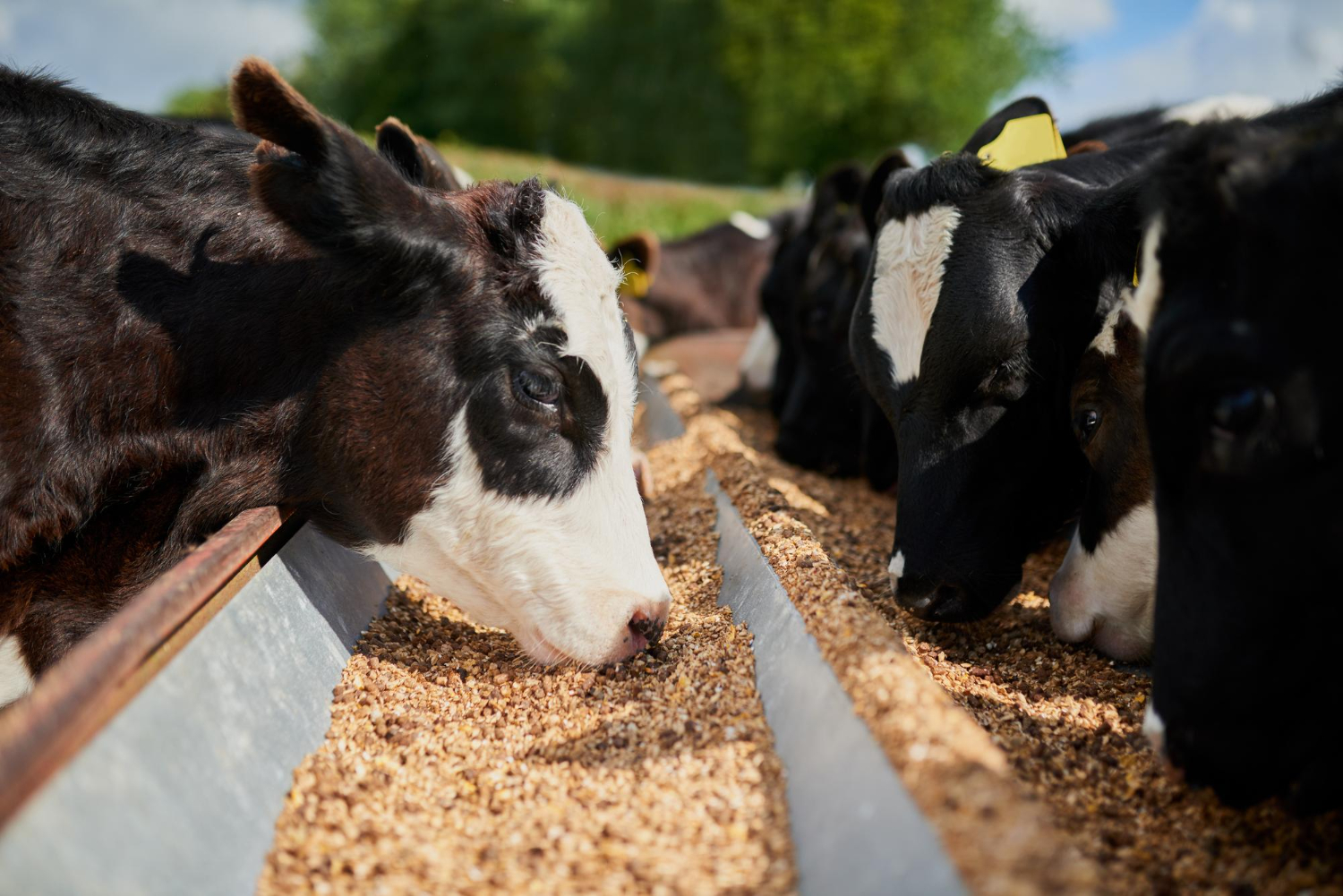What are the benefits of feeding mineral mixture for Cows

Getting a mineral balance right is critical in maintaining cow health and production efficiency. Experience has shown that feeding strategies don't fall into place without careful planning. Minerals provide a key part of that plan, even if they can become an afterthought. If you are in the dairy or beef industries, planning to provide minerals in balance to your herds is one of the most valuable investments that you can make in their health and well-being.
At Valvin Nutraceuticals, we’re all about science-based nutrition. Our animal feed supplements are designed to supplement the critical nutrients missing in your animals’ regular diet and to optimise overall performance. Here, we’re going to take a closer look at why mineral supplements for cows are so important and exactly what they do for livestock to create a better and more productive herd.
So, what’s the big deal about minerals for your cows? Although they may not account for much of a cow’s diet, they make their presence felt. You can picture them as the small but critical roles that help keep everything on track, bone growth, nerve function, hormone activity and even immunity. Just feeding grass and fodder doesn’t provide all of the necessary nutrients, particularly because factors like seasonal changes, soil quality and feed types could affect what cows end up with, and that’s why many ranchers opt to add a balanced mineral package to their cattle’s diet to make sure the cows get everything they need every single day.
What Exactly Is a Mineral Mixture for Cows?
In simple terms, a mineral mixture for cattle is a blend of key macro and micro minerals tailored to support the nutritional needs of dairy and beef cows. It often comes in powdered form, as mineral blocks, or mixed into concentrates. Valvin’s formulations are developed based on rigorous scientific research, ensuring they match real-world farm conditions. Whether it’s a high-producing Holstein in a commercial dairy or a crossbred cow on a small farm, the aim is the same: deliver essential minerals in the right balance to support daily function and long-term health.Key Nutrients Found in a Cow Mineral Mixture
A high-quality animal feed supplement includes a broad spectrum of minerals. The key ones you’ll often see are:- Calcium & Phosphorus – For bone strength and milk production
- Magnesium – Supports muscle function and prevents grass tetany
- Sodium & Chloride – Help with digestion and fluid balance
- Zinc, Copper, Manganese – Crucial for skin, immunity, and reproduction
- Selenium & Vitamin E – Work as antioxidants and support fertility
- Iodine – Regulates metabolism via thyroid function
How Do Mineral Supplements for Cows Improve Health?
You can usually tell when a cow is feeling good: bright eyes, steady appetite, smooth coat, and solid output. Behind that wellness is a combination of good management and sound nutrition. Proper mineral intake supports: -Enzyme activity -Hormone regulation -Healthy rumen function -Nervous system stability In essence, cows that are nutritionally balanced are more alert, less prone to stress, and better equipped to handle challenges like seasonal changes or infections.- Boosting Milk Output and Fertility Ask any dairy farmer what matters most, and milk yield will top the list, closely followed by fertility. Both are directly influenced by minerals. For example:-Calcium and magnesium affect the milk-producing process -Zinc strengthens the udder tissue, helping reduce mastitis risk -Selenium and iodine impact fertility and calving easeFeeding the right mineral supplements for cows can help reduce issues like silent heat, delayed oestrus, and retained placenta. This means better conception rates and more predictable calving cycles, which is a win for both animal welfare and your bottom line.
- Building Immunity and Disease Resistance It’s no secret, healthy cows cost less to raise. Minerals such as selenium, zinc, and copper help build the immune system and improve resistance to common infections. When cows are consistently fed a cow mineral mixture, they’re better able to fight off problems like respiratory disease, diarrhoea, and mastitis.In high-density or rotational farming setups, this becomes especially important. Prevention, as they say, is better than a cure, and that’s what mineral nutrition helps with.
- Better Feed Conversion and Weight Gain Whether you're raising dairy cows or beef cattle, feed costs are one of your biggest expenses. So it only makes sense to get the most out of every mouthful. Supplementing with minerals improves digestion and nutrient absorption. That means cows convert feed into energy, milk, or meat more efficiently.Phosphorus and magnesium, for example, aid in rumen function. Zinc and manganese assist in enzyme reactions and protein synthesis. Over time, these improvements translate into measurable gains, more milk per kg of feed or better weight gain with less input.
- Preventing Deficiency-Linked Disorders Unfortunately, mineral deficiencies don’t always show obvious signs until it’s too late. Some common issues include: Milk fever (calcium deficiency) Grass tetany (magnesium shortage) Anoestrus or low conception (phosphorus or manganese gaps) Faded coat or anaemia (copper deficiency) White muscle disease in calves (selenium deficiency)
How and When Should You Feed Mineral Mixtures?
Timing and consistency are crucial. Mineral mixtures can be:- Mixed into daily rations
- Offered as loose feed or lick blocks
- Included in fortified concentrate blends
Choosing the Right Product: What to Look For
Not all mineral mixes are the same. When selecting a supplement, consider:- The source of minerals (organic versions are often more bioavailable)
- Whether the formula suits your cattle breed and production goals
- Product transparency and scientific backing
- Support from a trusted animal feed manufacturer

